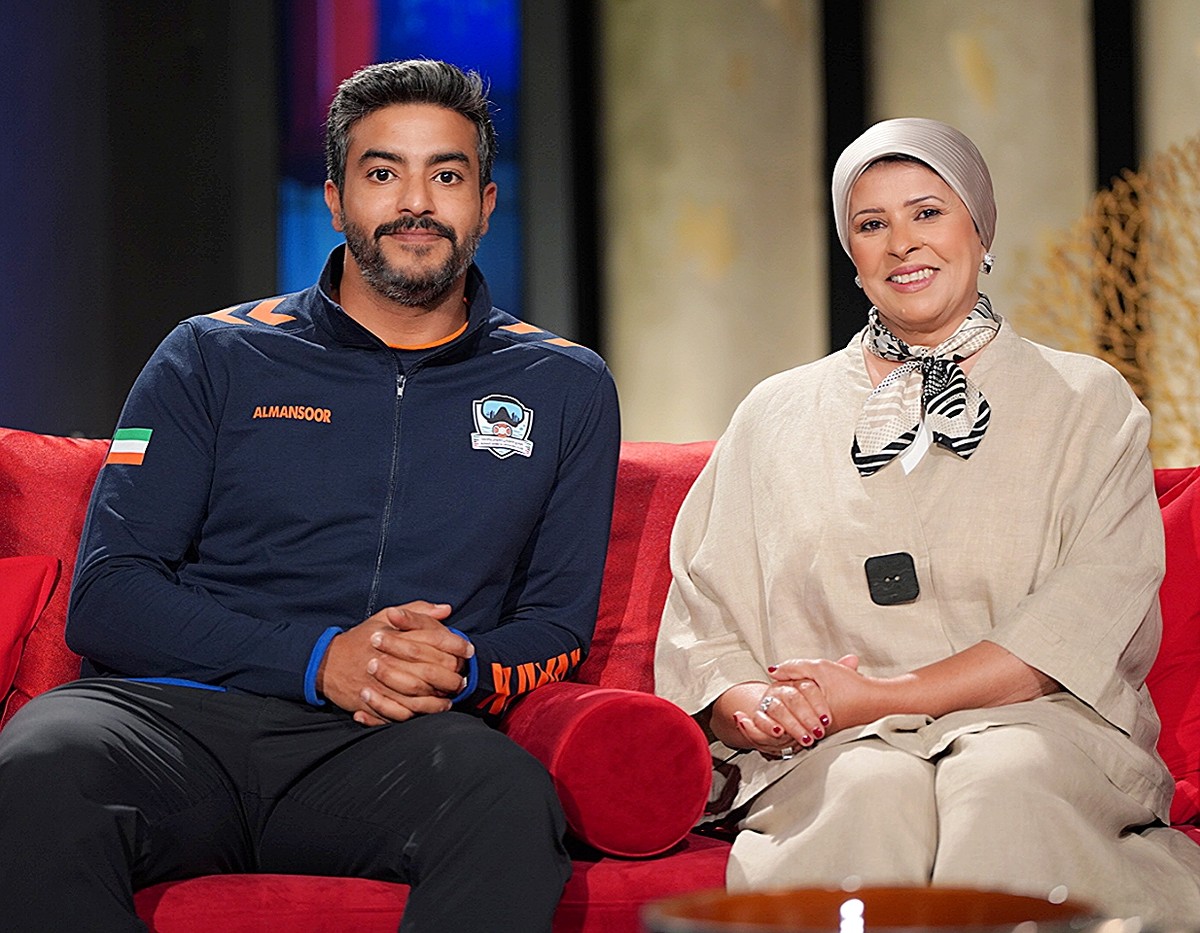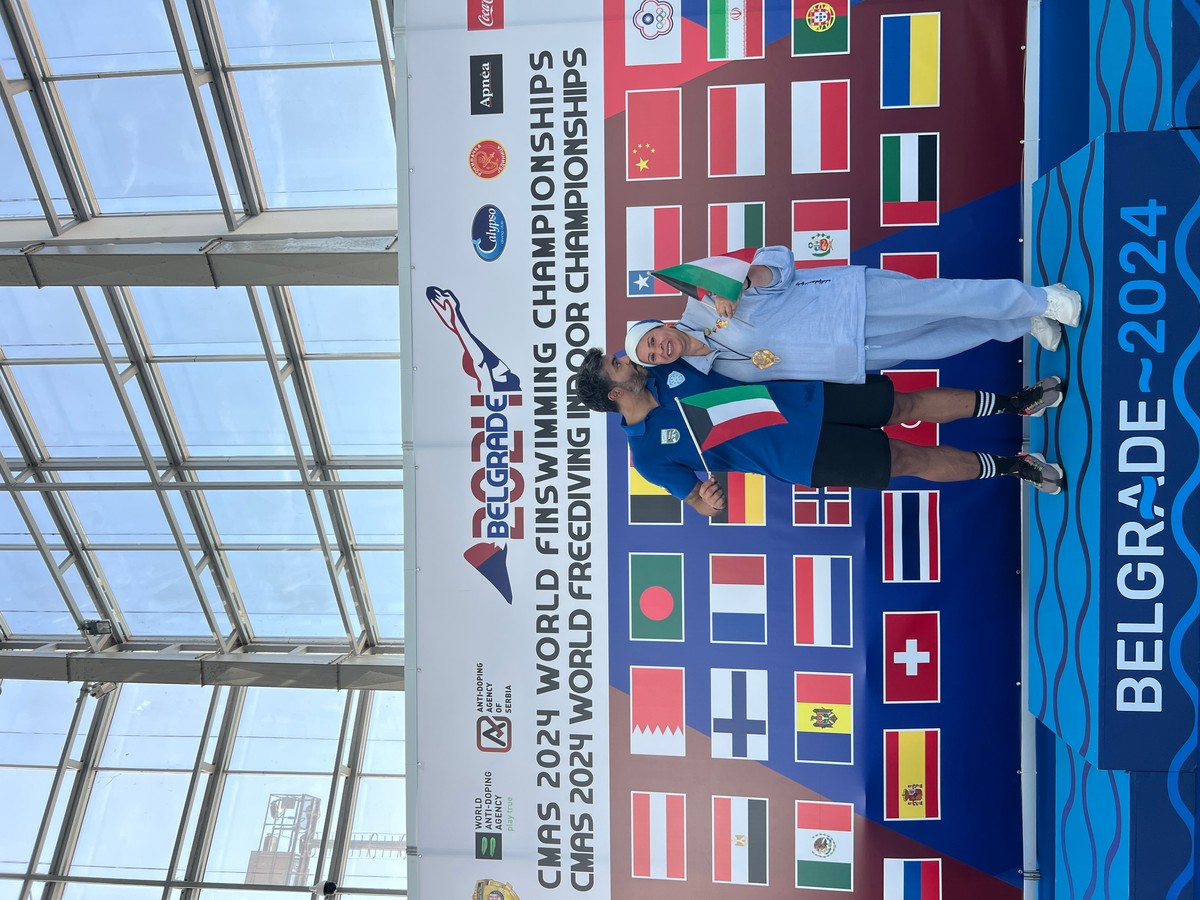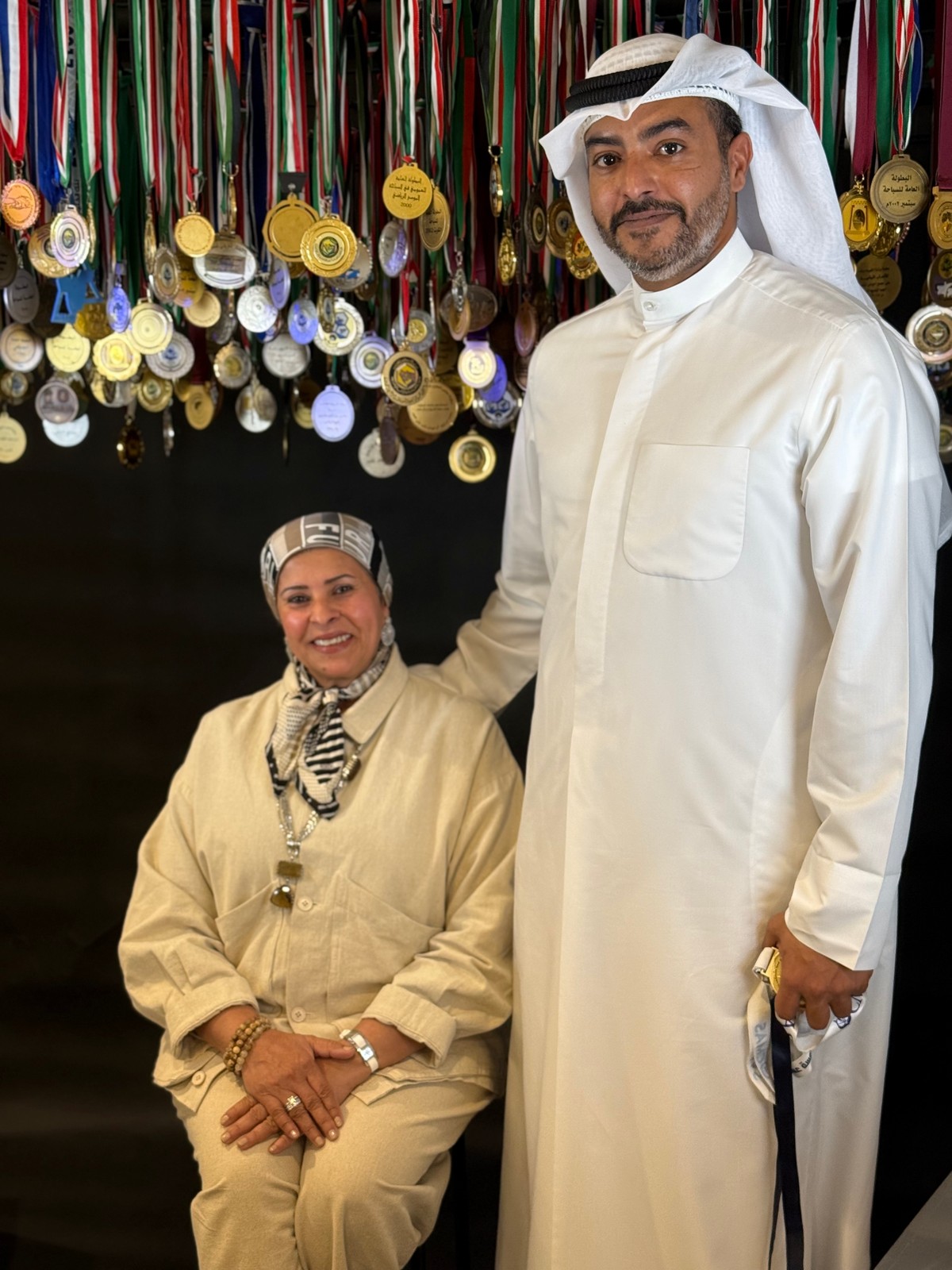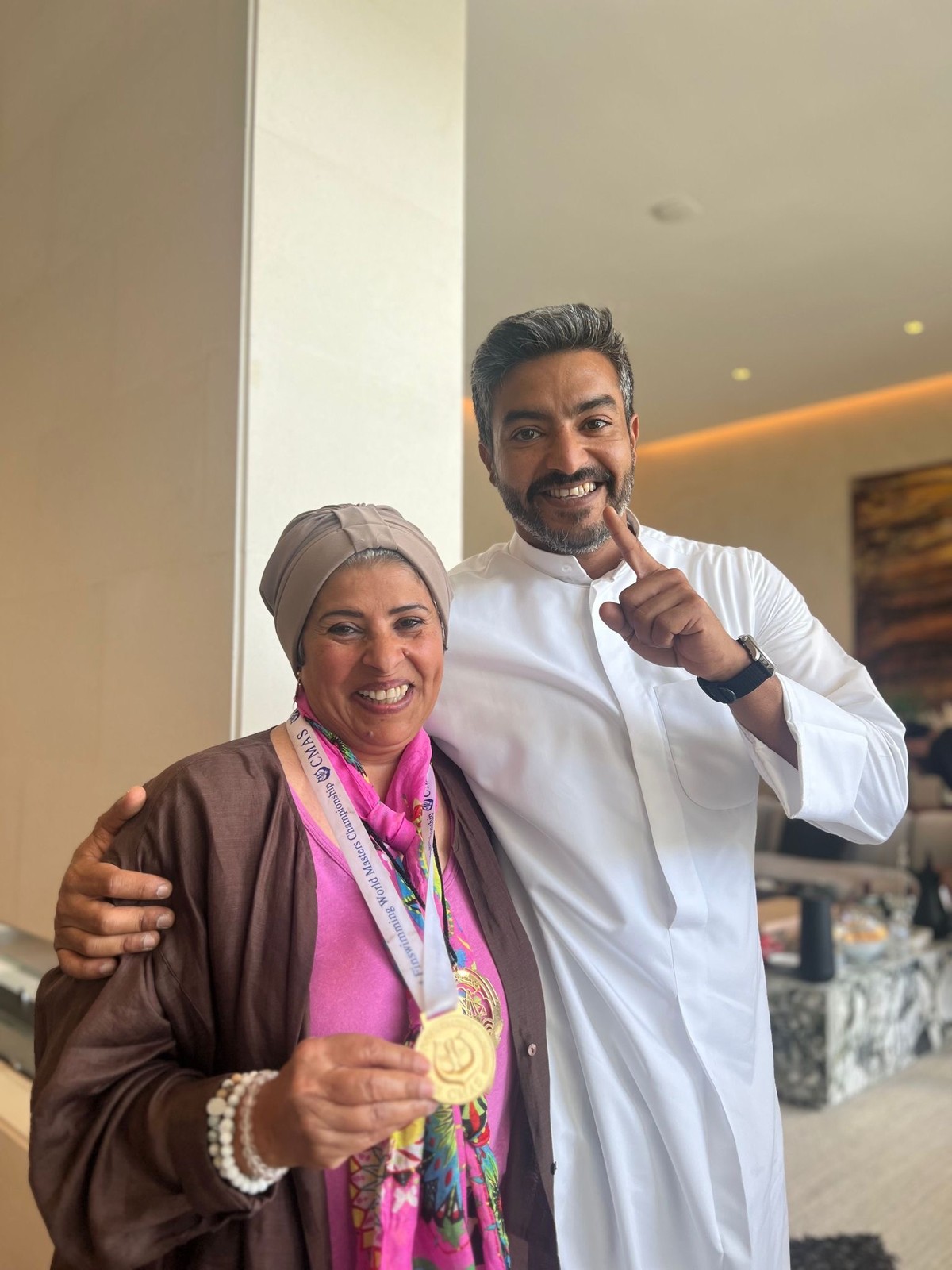21/08/2025
21/08/2025
Behind Mansour Al-Mansour’s success is the love of a mother, Rehab Al-Medlej, and the fire of a son who refused to quit. Together, they turned hardships into hope and a childhood spark into a global triumph.
For Mansour, water has always been more than just a pool; it has been a constant thread woven through his life. He was just a young boy when he first stood behind a starting block in Kuwait, unaware that the moment would shape his destiny. It wasn’t instant love, but a bond that deepened with every lap and every challenge, until the pool eventually became his sanctuary.














This isn’t the story of a child prodigy destined for automatic success, but it is a story of perseverance. Life pulled Mansour away from competitive swimming for nearly two decades, but discovering finswimming gave him a way back. It was something new, yet it preserved his bond with the water.
In this interview, Rehab Al-Medlej shares personal stories and the values that fueled Mansour’s determination, revealing the vital role she played in his remarkable career.
Question: When did you first see that spark in Mansour, that special love for the water?
Rehab Al-Medlej: Oh, it was so clear from the very beginning. When Mansour was just a little boy, he felt completely at ease in the water... calm, happy, and alive. It wasn’t just swimming to him; it was like he had finally found where he truly belonged.
Q: Was there a moment when you thought, “He’s not just good, this is something extraordinary”?
Rehab Al-Medlej: Absolutely. I remember his very first competition race. Watching him move with such focus and determination, I just knew... This wasn’t a simple hobby. This was something truly special. His passion was shining right there in his eyes.
---
Finswimming is a sport where athletes use a monofin or bifins to glide through the water. It combines speed, technique, and stamina. Success depends on respecting all three, as speed is useless without technique, and stamina is wasted without speed. Mansour Al-Mansour made history by winning Kuwait’s first-ever international gold medal in the 50m underwater race. He has broken multiple records, including a world record in the Masters Category. He earned these achievements without a coach or funding, and after years away from the sport.
He reminisced about the moment the world went quiet, his lungs burning, legs trembling, and his heartbeat louder than everything else. “I thought of every early morning, every lonely training session, and knew it had all led here,” Mansour recalled. His achievements were not born out of luck, but of persistence. Mansour is not a full-time athlete, as he balances intense training and recovery with a 12-hour full-time job that requires commuting to Khafji, Saudi Arabia.

---
---
It may not be easy, but it is simple. Al-Mansour puts it plainly, “Disciplined sleep, clean nutrition, and focused training. And I always carry my fin. It has been with me from the mountains of Zermatt to the waters of Zanzibar. It is my reminder that I am never off-duty.”
Beyond the hours spent in the water, the gym sessions, and mental conditioning lies another challenge - the mental one.
Before a big race, Al-Mansour grounds himself with a simple truth: “I remind myself I have been through worse than this. That knowledge gives me calm. I visualize the race, I breathe deep, and I let the pressure become fuel.”
His biggest challenge, however, was returning after 18 years to a competitive environment that was often hostile to his success. During his time away from the sport, he built a successful career, supported his family, and recovered from injuries. “My comeback was built on patience, strategy, and a willingness to start from zero,” he says.
---


---
With finswimming still flying under the radar compared to more mainstream sports, resources are scarce and support is limited. This has pushed athletes like Al-Mansour to become their own coaches, funders, and advocates. He calls for proper facilities, qualified leadership, and real investment in the sport. With time and persistence, he believes, the potential of finswimming will be recognized and inch closer to its place on the Olympic stage.
Since finswimming isn’t as widely recognized as other sports, resources are limited and support is weak. This has forced athletes like Al-Mansour to become their own managers, funders, and advocates. He calls for proper facilities, qualified leadership, and real investment in the sport. Slowly but surely, he believes its potential will be recognized, bringing finswimming closer to the Olympic stage.

---
Mansour Al-Mansour’s message to those aspiring to succeed in finswimming is a reminder that their dreams are valid, even if others don’t understand them.
“Work in silence, fight for your space, and let your results speak,” he says. “Every dream comes with a cost. For me, it meant giving up stability, comfort, and even relationships. It meant training alone, funding myself, and standing against systems that tried to break me. Was it worth it? Absolutely. I’d rather live with scars from fighting for my dream than regrets from never trying.”
By Sara Al-Awadhi
Special to the Arab Times


